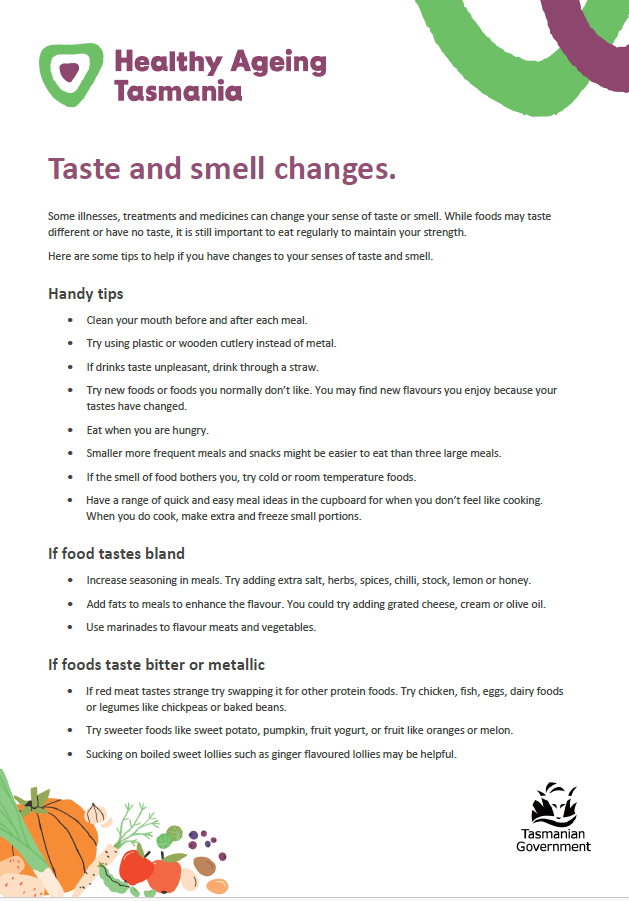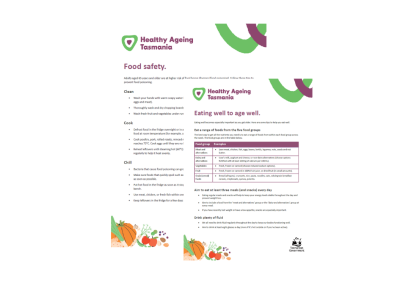Taste and smell changes

Downloads
Document accessibility
We aim to provide documents in an accessible format. If you are having problems using a document with your accessibility tools, please contact us for help.
Publication date:
Publication type:
Fact sheets
Last updated


